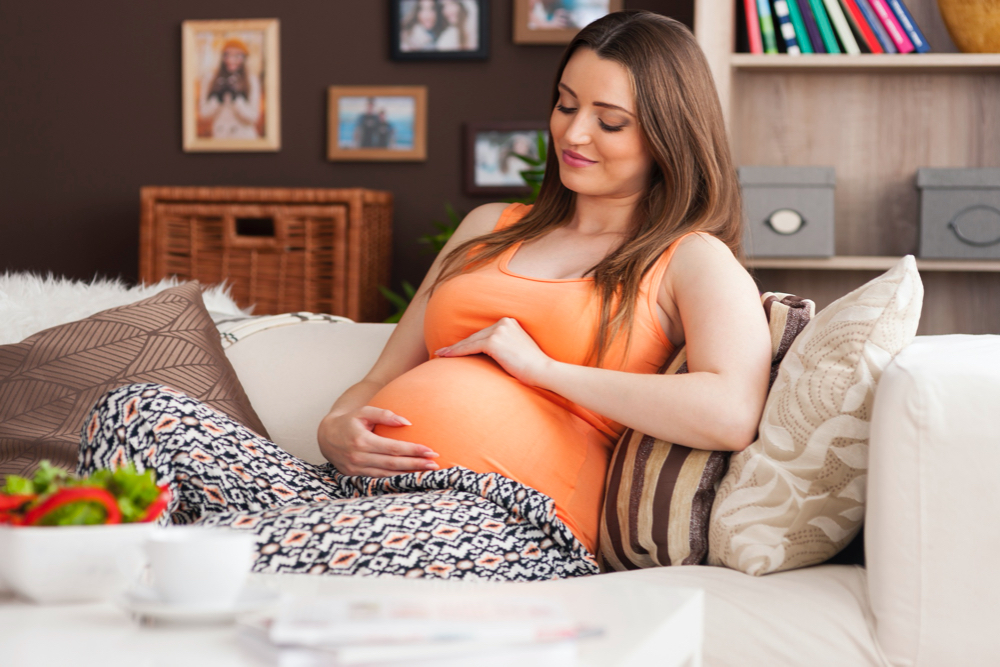- Fast results
- 4,000+ locations
- 4.8 star rating
Need Help? (888) GET LABS



Perimenopause is a phase wherein the body begins its natural transition towards menopause. Women experience the symptoms at varying ages, and the signs can be either notable or subtle. As you start recognizing perimenopause and you’re reproductively challenged, it’s normal to ask questions regarding its effects on fertility treatments. One is how different in vitro fertilization or IVF is during perimenopause.
While you can still do IVF if you experience perimenopause, several factors must be considered to guarantee its success such as hormonal fluctuations, egg cell viability, etc. As you read on, learn more about the risks and determinants involved in IVF during perimenopause.
When going through perimenopause, your fertility starts to go downhill as hormone levels related to egg production gradually decrease. However, you can still be pregnant as the ovarian reserve remains intact.
This means that for those going through IVF, there is still a good chance of conceiving, but there is a time factor that entails urgency. As a result, women planning to get pregnant should pursue the procedure immediately, as menopause is just around the corner.
You may assume that perimenopause kicks in when women turn 40 or are close to 50. But there are cases wherein women in their mid30s already experience symptoms of perimenopause. Therefore, experts continue to encourage perimenopause anticipatory guidance for women turning 30 to reduce fear, discomfort, and other impacts of the transition.
Here are symptoms of perimenopause to look for and communicate with your gynecologist or fertility specialist.
The symptoms of perimenopause are not exactly exclusive to the condition. Most of them can be easily mistaken as just part of premenstrual syndrome (PMS). They also relate to a menopausal syndrome that could alarm some women undergoing IVF.
Simply put, your gynecologist couldn’t tell perimenopause with these symptoms alone. You must undergo hormone testing to diagnose perimenopause and ensure reproductive fitness for IVF and other fertility treatments.
Hormone testing for perimenopause includes blood tests for the following hormones:
Pro Tip: You can take all these tests and more when you get the Female Fertility Profile Blood Test. This package includes testing for all the hormones involved in perimenopause fertility, including testosterone, prolactin, thyroxine, etc. It also has a urinalysis to detect infections.
The Centers for Disease Control and Prevention (CDC) reports that about 12% of women avail of treatment for infertility. Many turn to In Vitro fertilization or IVF when medications for natural conception during perimenopause prove to have lower chances of success than clinical fertilization outside the fallopian tube.
In Vitro fertilization is performed when an egg cell is extracted from the ovary and placed in a petri dish when a sperm cell is injected for fertilization. Once the embryo is formed, it will be transferred to the uterus for implantation, allowing it to grow.
Although the procedure may sound straightforward, several factors should be considered to guarantee its success, such as age, egg quality, and pre-existing conditions affecting fertility during perimenopause in particular. In addition, IVF during perimenopause requires careful attention and pre-procedure testing to clear out potential issues that will go against the goal of the treatment.
The latest report by CDC on assisted reproductive technology identifies a 47.2% success rate for IVF circles with women below 35. Those between the ages of 35 to 37 have a 34.6% success rate, followed by 22.1% for women aged 38 to 40 and 7.2% for those above 40.
The gradual decrease in IVF success can be attributed to the decline of hormone levels during perimenopause and the degradation of egg cell quality. Nonetheless, for those who are getting egg donors, the success rate changes depending on structural and other chemical issues concerning the reproductive system.
While IVF during perimenopause remains effective for many women who wish to conceive, it also comes with several health risks you opt to discuss with your fertility specialist. These include the following:
Multiple births: During IVF, a woman would receive at least two embryos implanted in her uterus. This practice ensures the procedure’s success with the idea that at least one is viable for pregnancy.
However, the chances that more than one survives and makes it to the childbirth delivery is higher than standard conception. As a result, women in perimenopause who have undergone IVF need to be extra health conscious when they are pregnant.
Inflamed Ovaries: Medications for infertility that induce ovulation or increase levels of hormones like the human chorionic gonadotropin (hCG) hyperstimulate the ovaries, making them work harder than usual. This leads to swelling and even perceivable pain.
Miscarriage: One downside of going through IVF when you’re at the perimenopausal stage is producing ova that have less quality than when you’re still at your peak fertility. Poor egg cells may contain chromosomal defects that will eventually lead to miscarriage.
Ectopic pregnancies: When the embryo does not attach to the uterine walls and implants somewhere else like the fallopian tube, it is called an ectopic pregnancy. This type of pregnancy will not progress and could even endanger the mother’s life. Ectopic pregnancies occur in 1.5% to 2% of IVF patients.
Mental Stress: Undergoing fertility treatments and getting unsuccessful every time can seriously affect a woman’s mental health. The infertility problem is already stressful; when you add the uncertainties of IVF, the anxiety and emotional rollercoaster can inflict psychological strain.
On that note, women or couples who plan to seek ART should undergo counseling throughout the process and be given emotional support.

With ART as an expanding technology in fertility treatment, you get multiple options if IVF turns out to be incompatible. Ask your fertility specialist about the following:
Mature Oocyte Cryopreservation (Egg Freezing): Egg freezing has been trendy, especially among young women who plan to delay childbearing until they are ready or later. This option ensures that you still have a reserve of quality and viable egg cells even if you decide to have a baby through ART during your perimenopausal or menopausal phase.
Frozen Embryo Transfer: This process matches young couples who’d love to have a baby via ART later without worrying if the embryo has the right quality for implantation. Of course, as far as embryo viability is concerned, it’s best to consult your doctor before the fertilization procedure.
Third-Party ART: In some cases, IVF failure can be associated with poor egg or sperm cells. Therefore, the most logical solution for many couples is to seek donated gametes from others.
Gamete Intrafallopian Transfer (GIFT): Many couples would want to go through ART blended with the natural process of conception due to personal or religious reasons. As a result, instead of choosing IVF, they go for GIFT.
GIFT is different from IVF in that GIFT transfers gametes (egg cells and sperm cells) in the fallopian tube, allowing them to undergo fertilization inside the female reproductive system as opposed to IVF’s petri dish fertilization.
It’s not too late to get pregnant at the perimenopausal stage. However, the clock ticks faster than ever. Hence, you shouldn’t delay your pregnancy plans, whether taking the natural or assisted reproductive technology route. If you’re dealing with infertility issues, work closely with a fertility specialist and get the right fertility tests to monitor your reproductive hormone levels.


We now offer pharmacy discounts through our PersonalabsRx platform.
We now offer pharmacy discounts through our PersonalabsRx platform.